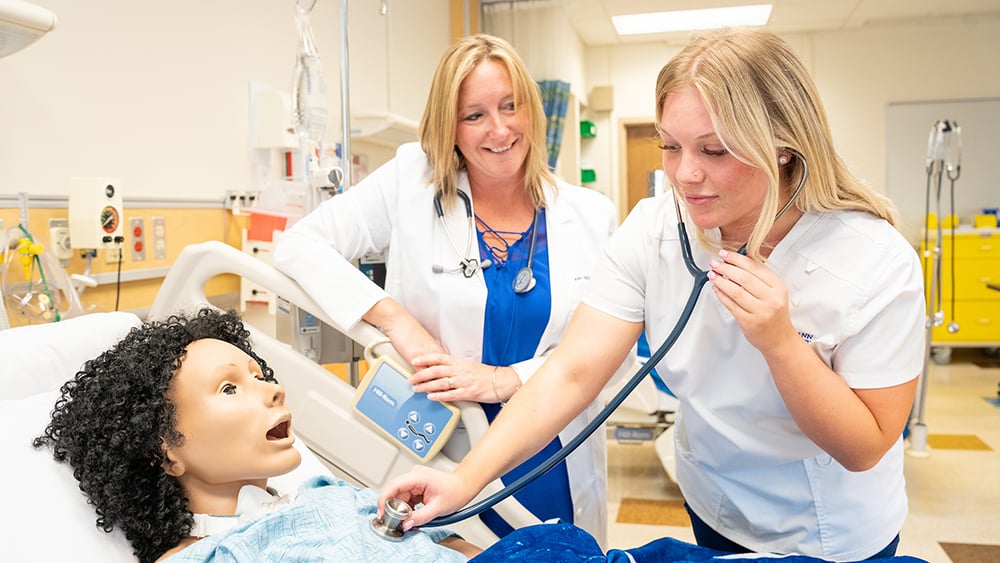
Kristen Evans has a sense of humor. She describes the PhD in Nursing that she just earned as “the hardest thing I’ve ever done … and I have four kids.”
The five-year journey to a doctorate in an online program at Catholic University of America “took constant persistence and perseverance,” lessons she is quick to preach to her undergraduate nursing students.
“I truly care about their learning and progression, and I want them to be successful. I explain things in depth because I want to engage them. I take the time to talk to them and get to know them. It’s what makes Neumann uniquely personal,” she explains.
Her decision to pursue a career in nursing was based on a mixture of inspiration and pragmatism. “My mom and my aunt are nurses. They’re my role models. I saw that there was meaning in their work, that their profession meant more to them than just a paycheck.”
The practical reasoning was rooted in her personal story. “I had my oldest daughter when I was 17. When I finished high school, I knew that I had to study a field that would guarantee me a job and a lifelong career, something that would sustain me long term,” she says.
Evans has been an ICU nurse at Riddle Memorial Hospital for the last 20 years and has taught full-time at Neumann since 2015. She still works at least 24 hours each month in the ICU, always the night shift.
“I feel very strongly that I’m going to continue to practice as long as I can manage it because, if I’m educating people to become nurses, I need to be current in practice and know what’s happening in a real setting, not just in a textbook.”
She believes that continuing to practice has a direct effect on her students. “I see it in my evaluations, and I hear it from students and Dr. Pietsch,” dean of the School of Nursing and Health Sciences.
Evans knows the impact of positive reinforcement. Her dissertation topic was The Essence of Meaningful Recognition and Its Relationship to Burnout Among Nurses. Evans chose the topic before COVID and found that nurses who felt more recognized and personally appreciated experienced less burnout and could better cope with tough days.
The Aston resident teaches courses that fall under a medical-surgical or health assessment umbrella. In the fall, she plans to re-introduce into the curriculum an online critical care course.
Her greatest joy in teaching is “seeing students that you’ve molded over several years graduate.” She takes pride in witnessing students who were timid on the first day of clinicals become confident, professional nurses.
 CHALLENGE
CHALLENGE






